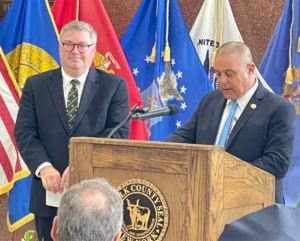Egan & Golden won dismissal of all claims in a federal civil case in the Southern District of New York. The firm represented a New York resident accused of perpetrating a fraudulent Amex “charge-back” credit card scheme that resulted in a financial windfall for defendant and a Florida company losing its credit card processing system. Brian Egan and Christopher Bianco successfully argued that New York’s “borrowing statute”, codified in Section 202 of New York’s CPLR, barred all of Plaintiff’s claims.
When a plaintiff is a non-resident seeking to enforce a claim arising outside of New York, CPLR § 202 requires that courts use the shorter limitations period of either New York or the state where the claim accrued. The purpose of the statute is to prevent forum shopping by plaintiffs seeking to take advantage of New York’s longer statutes of limitation. If the foreign state’s limitations period for a claim is shorter than New York’s limitations period, the foreign state’s limitations period applies. CPLR § 202 is substantive state law that must be applied by federal courts sitting in diversity. Stuart v. American Cyanamid Co., 158 F.3d 622, 626-27 (2d Cir. 1998). Because the borrowing statute pre-dates the CPLR, the time and place of accrual does not follow modern choice-of-law analysis. The Court of Appeals has held that “when an alleged injury is purely economic, the place of injury usually is where the plaintiff resides and sustains the economic impact of the loss.” Global Fin. Corp. v. Triarc Corp., 93 N.Y.2d 525, 528 (N.Y. 1999). In applying the borrowing statute, the court must determine the foreign state’s applicable statute of limitations and apply the foreign jurisdiction’s tolling rules. The one exception to application of foreign tolling rules is “absence from the state” tolling provisions. Foreign tolling statutes that are reliant on either the defendant’s absence from the foreign state or defendant’s amenability to personal jurisdiction are inapplicable to analysis under the Borrowing Statute.
In the firm’s case before Judge Vernon Broderick of the Southern District, the Florida statute of limitations for each of Plaintiff’s claims was four years, while under New York law the limitations period was six years. Mr. Bianco argued that Plaintiff failed to allege a sufficient basis to apply Florida’s equitable tolling rules and that Florida’s “absence from the state” tolling provision was inapplicable under the borrowing statute. The Court dismissed Plaintiff’s claims as untimely. The decision is available here.
Federal courts sitting under diversity jurisdiction must often untangle a complicated web of state and federal law. Egan & Golden has experienced federal litigators who can help clients navigate complicated federal procedure.
To view the SDNY decision in PDF format click here.




